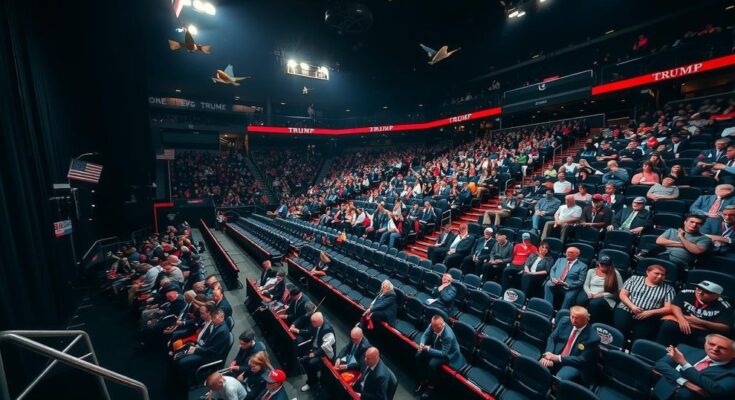Donald Trump is facing a significant increase in unpaid financial obligations connected to his campaign rallies, which includes costs for security and police services. Notably, cities such as El Paso and Mesa have outstanding invoices totaling several hundred thousand dollars. Concurrently, his campaign is struggling with declining small-dollar donations and increasing legal expenses, complicating his bid against Democratic Vice President Kamala Harris, who is currently leading in the polls. This issue arises as jurisdictions require advance payment for events linked to Trump, reflecting a long-standing pattern of financial disputes associated with his career in both business and politics.
Donald Trump, the Republican presidential candidate, is currently facing significant financial liabilities stemming from unpaid dues related to his campaign rallies across the United States. Despite ongoing efforts to fundraise and campaign as he approaches the 2024 elections, there is a growing concern regarding a series of unpaid bills tied to previous rallies, including substantial costs for security, public safety, and facility rentals. As Trump prepares to compete against Democratic Vice President Kamala Harris, who is leading in key polls, his campaign is reportedly struggling to maintain a steady flow of contributions. Recent analyses indicate a notable decline in small-dollar donations—a stark contrast to the 2020 election cycle where such contributions constituted nearly half of his donations. Several cities, including Prescott Valley and Mesa in Arizona, have highlighted outstanding invoices from Trump’s rallies dating back years, some reaching amounts of over $60,000. Notably, the City of El Paso, Texas, claims that Trump owes over $569,000 for a rally that took place in 2019. The city insists that the unpaid dues contribute to a financial burden on the community’s taxpayers. Legal troubles further complicate Trump’s financial picture, with mounting legal fees exceeding $100 million owing to a multitude of lawsuits and ongoing cases regarding election fraud allegations. Trump has a well-documented history of failing to settle his financial obligations, with thousands of lawsuits against him spanning three decades, including complaints from former workers alleging unpaid wages and overtime. In light of these circumstances, various jurisdictions have implemented stricter payment policies, requiring Trump’s campaign to remit payment in advance for services rendered. This evolving financial landscape underscores the challenges facing Trump as he navigates his current campaign, bedeviled by both financial and legal complications that may impact his electoral prospects.
The article critically examines the financial woes faced by Donald Trump’s campaign during his current presidential bid. It highlights a pattern of unpaid dues from his previous rally events, indicating a persistent inability to meet financial obligations not only to cities but also among contractors and other entities he has worked with over decades. Trump’s financial struggles are juxtaposed against an increasingly successful fundraising campaign by Kamala Harris, his Democratic rival, which casts further doubt on the efficacy of Trump’s campaign strategy. Furthermore, the article sheds light on the legal ramifications of Trump’s financial dealings, including the use of campaign funds for personal legal fees, framing these challenges within the broader context of his political career.
In conclusion, the financial liabilities accruing from Donald Trump’s rally events reveal a troubling trend of unpaid dues, placing additional strains on his campaign as he confronts a formidable opponent in Kamala Harris. The article outlines the broader implications of these financial challenges, including the potential impact on his electoral viability and the ongoing legal issues that further complicate his campaign. As Trump navigates these hurdles, it remains to be seen how these financial difficulties will influence voter perception and support leading up to the 2024 elections.
Original Source: www.aljazeera.com




